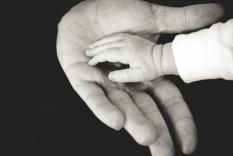Employers and Universities: Work with us?

60 Second Interview – Midwife
There’s a lot more to midwifery than just delivering babies, as Sara Sardarizadeh, a midwife at St George’s Hospital in London tells us…
Name: Sara Sardarizadeh
Company: St George’s Hospital, London
Industry: Healthcare
What is your job: Midwife
How long have you worked here: Three years.
Education
University: Kingston University
Degree subject: BSc in midwifery
What was your very first job?
I also have an art degree so I have a background in the film industry. I worked in the art department, either dressing sets or in scenic painting.
What did you want to do when you were at school?
I always wanted to be an artist as I could draw and knew I would be good at it.
What made you want to do your current job?
At the age of 30 I started thinking about changing careers and heading into the healthcare industry. I liked the idea of offering my support to others who needed it. Through research I narrowed it down to midwifery as I believed it suited my personality and I could see myself doing a job that involved one-to-one care.
How did you get there?
I researched the criteria I needed to get into university and enrolled on to an adult course, which offered an equivalent qualification to A-levels. While studying I volunteered with different charities to gain further experience as I knew this was also a prerequisite for my university application.
What is a typical day at work like?
A midwife rotates around different departments in the hospital. We work in triage, postnatal, antenatal and labour wards. Our role is to be an advocate for women. We offer evidence-based advice to enable them make the right decisions for their pregnancy and birth.
There are times when we act as protectors as well, not only to the women but the newborns too. We need to have the right skills to offer medical help in case of an emergency, so our knowledge and abilities need to be at a high standard.
We work with doctors to make a care plan for women who have other health issues and we are legally responsible for the women and newborns we care for, so we have to carefully document and record events.
We also work in the community and visit women in their homes once they have given birth to ensure that they are coping well with motherhood.
We are always learning and studying as midwives. This is a requirement of our code of practice so often you will find midwives have achieved an MSc or PhD, and go on to further development and research.
What’s the best thing about your job?
No one day is the same, and meeting so many different families from different ethnicities and walks of life.
What is the most challenging thing about your job?
There is never enough time to complete our tasks so speed is essential. This can make our job extremely stressful and tiring.
What advice do you have for people who want to do what you do?
Patience is the number one attribute, followed by empathy to others. You need to have a non-judgmental mind as you meet women from many different cultures and it is important that you don’t bring your own views and opinions when caring for a woman and her family.
It’s also important to understand the role of a midwife and not see them just as the person who delivers babies. You must be a team player, as you’ll be working with other midwives who you may not have met before. Midwifery is a disciplined and guideline-based environment so there must be a certain level of respect for these guidelines, and knowing your limitations within your practice.
I would highly recommend gaining some experience in the healthcare industry before applying as this will give you a valuable insight to the job. Try to get some work experience on wards, or in hospices where you are placed in difficult situations and need to use holistic skills as well as catering your care to the individual.
What things do you wish you’d known before starting your career?
Apart from wishing I knew earlier that it was midwifery which was best suited to me, I wish I also had better knowledge of anatomy and biology.
Where would you like to be in five years?
Hopefully working as a specialist midwife or learning international midwifery abroad.
For more information on midwifery, have a look at the Royal College of Midwives website. Check out our article on how to become a midwife too.
